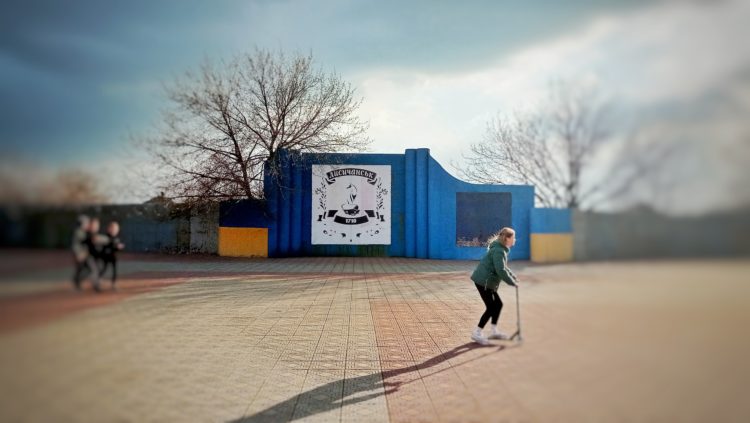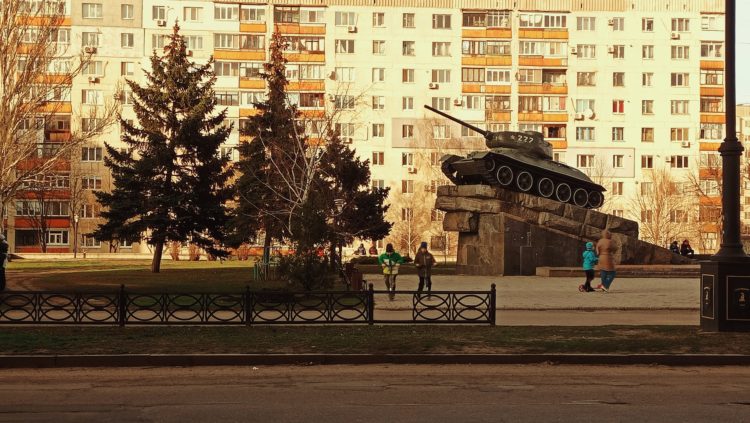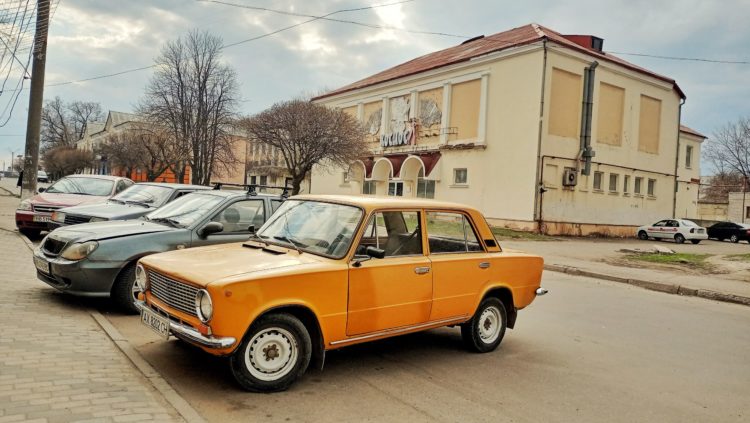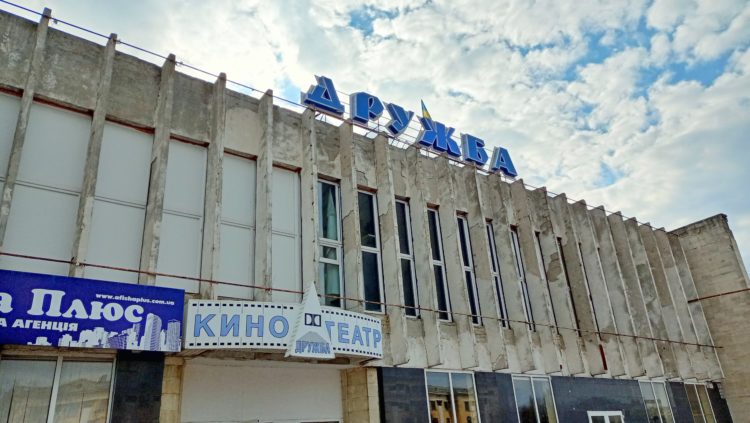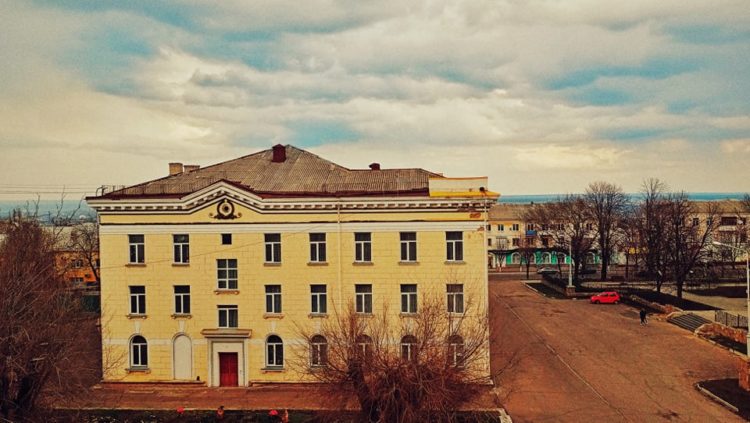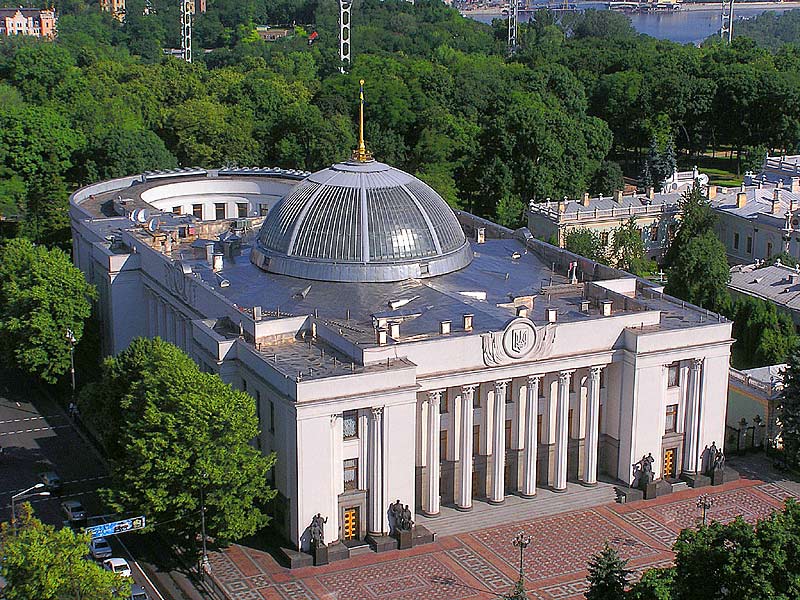Lysychansk is a provincial city of Luhansk Oblast with a population of about 100,000 people located about 30 kilometers from the frontline. Like most of the Donbas cities, Lysychansk used to be an industrial hub with large factories including a rubber technical plant, a glass factory, and even a soda factory, among others.
Now they are no longer in function though not due to the war, but due to local corruption. The war came to this city, however as well. From the end of May to the end of July 2014, Lysychansk was under the control of the so-called “Luhansk People’s Republic” until Ukrainian forces liberated it.
Now, the city is learning to live from scratch. Planning the future and dreaming have turned out to be not such easy tasks, both for adults and teenagers who often take on the fears of their parents. To help the younger generation outline their future clearly and destroy any fears about it, Natalia Yaschuk, project manager of Hromadiany (Citizens) Foundation and one of the organizers of Mriynyky (Dreamers) project, came to Lysychansk.
During the last three years, she has organized career guidance courses for school students in dozens of Donbas towns and villages.
What is Mriynyky and how it all started
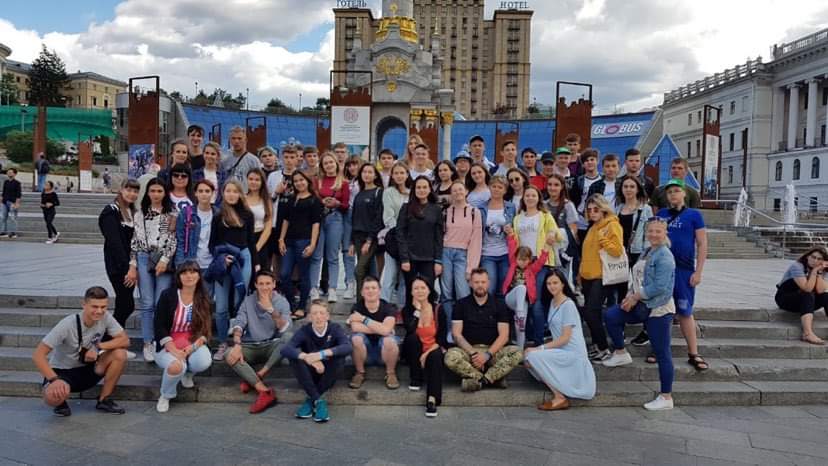
The Mriynyky initiative started in 2018 when a group of volunteers, including Natalia, decided to help make the dreams of the children from the Donbas “gray zone” come true. Before the New Year, there were 256 applications from the children consisting of their wishlists. An auction was held to provide funds for the children’s various gift wishes, and some people were kind enough to send the volunteers presents for the children.

All the children’s wishes were fulfilled.
“Some children wanted tablets, others wanted felt-tip pens. Of course, for those who wanted felt-tip pens, we supplemented the gift,” Natalia remembers.
Influenced by meeting the children, the volunteers decided to take a step further for them. One of the initiatives born from that spark was organizing professional guidance courses. Volunteers also suggested having some of the teens from Donbas acquainted with their peers from other regions of Ukraine.
The first such meeting took place in Dnipro. There, the local school students met the children from Krasnohorivka, a town in the “gray zone” in Donetsk Oblast. Before the meeting, the participants had a task - to shoot a video about the place where they live.
Natalia remembers that the images of the bombed school in Krasnohorivka made the volunteers, as well as the kids from Dnipro, cry.
One of the girls from Dnipro even asked for permission to show the video to her classmates.
“She said that her classmates argue about who has a better smartphone, and she wanted to show them how others of their age live.”
During the meeting, a facilitated session was held where teens were encouraged to dream about Ukraine’s future.
“We were impressed. They are teenagers, but they think as adults. Especially those from Donbas. The kids that experience the conditions of war grow up faster than their peers,” Natalia observed.
Later, further such unifying meetings took place in other cities across Ukraine to create teams of “Mriynyky” (Dreamers). The main goal was to create a united Ukrainian movement to dream. These meetings would take place alongside continued professional guidance sessions for the Donbas children.
“Our idea was to reintegrate the youth so they could plan for a future in free Ukraine. As there was a possibility that some of them could choose to study in the so-called ‘LNR’ or ‘DNR’.”
Natalia completed a training on how to conduct the professional guidance courses and took her expertise with her to various Donbas towns and villages to work with the teenagers there.
The course in Lysychansk

The course was meant to take four weeks. However, it had to be adapted to the new regulations during the COVID-19 pandemic. The course included the same activities, but now was more intense and would take four days, divided into two separate sessions.
In Lysychansk, the course had other novelties as well. Upon invitation of Oleksandr Zayika, the head of the Civil-military administration of the city, the volunteers of Mriynyky came to help the city. In Lysychansk, as well as in 18 other united territorial communities of Donbas, the 2020 local elections did not take place, supposedly explained by security reasons. Civil-military administrations, or temporary state bodies, were introduced there instead of bodies of self-governance.
- Read also: Why eastern Ukraine continues to support pro-Russian politicians in the seventh year of war
Zayika was appointed as the head of the Lysychansk Civil-military administration at the beginning of August 2020.
He welcomed the initiatives which would help further develop the region, Mriynyky among the first who responded.
However, Lysychansk is a large city consisting of more than 21 schools, spanning an area much larger than the volunteers could handle at the time. It was decided that to expand the influence of the Mriynyky movement across the city, a new practice would be introduced, where local adults would be taught to be trainers themselves.
The idea of the initiative is to attract those who want to work. The opportunity was presented to representatives at all the local schools. The first four teachers who responded were invited to take part in the course together with school students. In total, 14 participants from the schools went through the course.
As Natalia shared, during her first two days running the initiative, both the local adults and teenagers were not so open. However, during her second visit the goal was reached – some teenagers explored new professions, some came closer to combating their fears.
How teenagers and adults learn to dream

Moving to another city for study is often a logical step for one’s development. However, moving was one of the main fears Natalia observed among the Donbas teenagers, likely a result of some teenagers never before having traveled beyond the borders of their region. Therefore, the plans they would build for their futures were often artificially narrowed.

“Technical professions are inherent for their region. If someone is not a cook here, then he is a miner. They direct themselves to the fields existing in the region.”
Some of the teenagers were not even aware of the existence of some professions. The course Natalia conducts is aimed at expanding the teenagers’ worldview with regards to the professions they may choose.
The initiative proved to be successful - all the students entered universities in the territories controlled by the Ukrainian government, many in Kyiv. Natalia also recalls several cases where students chose a new profession they discovered instead of those dictated by their parents or circumstances.
“We don’t give [the teenagers] a clear answer for who they should become in the future. However, they get to know themselves better.”
Tetiana is a facilitator at a local school who took part in Natalia’s training in Lysychansk. She will continue Mriynyky’s vision by providing professional guidance courses in the city. Tetiana was born and lives in Lysychansk, and only had to leave it for three summer months in 2014 during the war. Her own children were young at that time and she did not want to expose them to war trauma, so she decided to move to her relatives in Russia for the time being.
“Of course, now I have anxious feelings as Russia builds up its troops; the situation is escalating. However, I wonder whether I will leave the city this time. I doubt it.”
Tetiana speaks Ukrainian. As she said, people around her are changing as well and have been increasingly turning to Ukrainian, and those who are against it have already left the city. But still, sometimes Tetiana faces questions regarding the language:
“Why do you speak Ukrainian? But what language should I speak? I was born in Ukraine. I have a Ukrainian passport. I will speak Ukrainian.”
Tetiana made her choice and cannot imagine herself in Russia now. While defining her civil stance was easy for her, defining her personal dreams was much harder.
“A facilitator from another school said that children can’t dream. I am an adult, I returned in 2014 and only now, seven years later I have started to revive myself. In 2016 we had a media literacy training in Sievierodonetsk [Luhansk Oblast]. The trainer asked us to write what we dream about on a piece of paper. And I did not know what to write. I was completely desperate. The greatest thing for me was to run home and close myself from the whole world. However, you can’t close yourself. You should talk to people, raise your children. To raise them, you have to get rid of your fears and live on.”
Tetiana plans to share the knowledge and experiences she received from the professional guidance training with the students of other Lysychansk schools.
Natalia, on the other hand, plans to work on a new project - the school of Documentary and Media DocUaDream for teenagers from Donbas organized together with the NewDonbas - another initiative supporting the kids traumatized by the war since the first year of it.
“We want to give something more to them. Some particular skills. In one city I was questioning teenagers about what they can do the best. One boy answered that he can get to the bomb shelter in 10 seconds...”
Meanwhile, the movement started by Mriynyky is already bearing fruits as the children who went through the course are now developing their own projects. Natalia remembers several of them. Some from the remote village Novomykhailivka, Donetsk Oblast, decided to clean the banks of a local basin. The team from Kharkiv organized a collection of money which they then provided to an orphanage. It was done totally without the help of adults.
Read also:
- Youth initiative breathes life into Donbas’ first occupied city| Video
- German NGO strengthens civil society in Sloviansk, first victim of “Russian Spring”
- “My dream is to help someone like I was helped” – teenager who suffered Donbas war [VIDEO]
- How war changed a teenager’s life for the better
- The Berlinale Grand Prix film from Ukraine tells a different story of the Donbas
- Bringing democracy to Shchastia, traumatized war-town with a happy name
- From “Russian world” supporter to Ukrainian patriot: a story of a Donbas girl’s worldview transformatio
- Exchange programs dispel destructive myths, bridge east-west divide in Ukraine
- Four inspiring stories of refugees who found success in Kyiv

